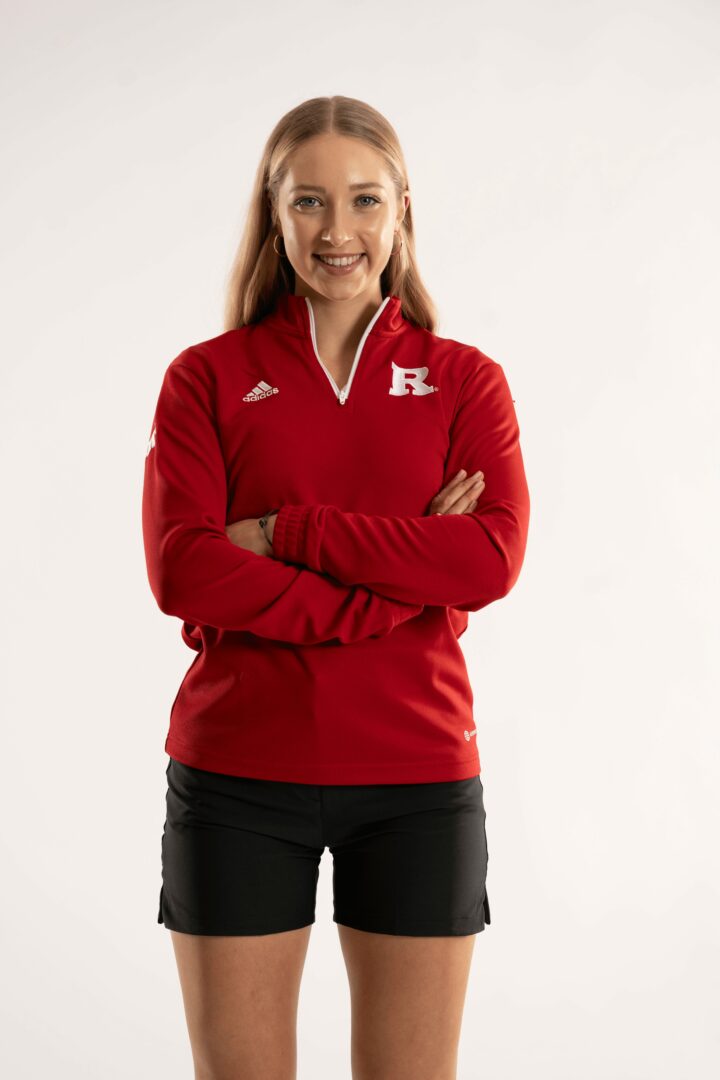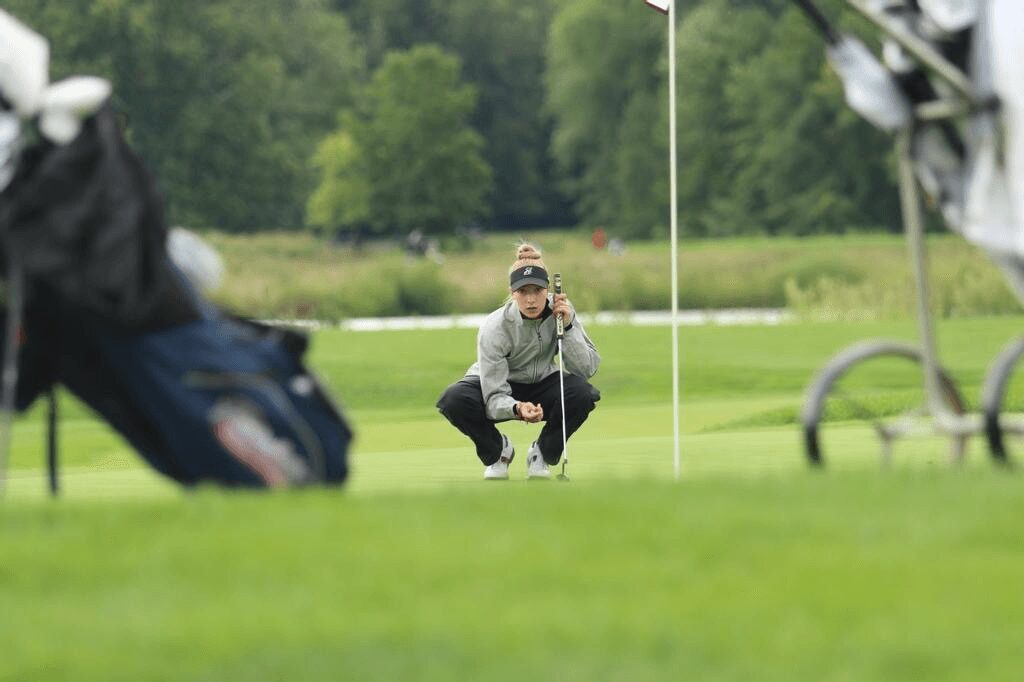Alright – so today we’ve got the honor of introducing you to Cathi Graf . We think you’ll enjoy our conversation, we’ve shared it below.
Cathi , so great to be with you and I think a lot of folks are going to benefit from hearing your story and lessons and wisdom. Imposter Syndrome is something that we know how words to describe, but it’s something that has held people back forever and so we’re really interested to hear about your story and how you overcame imposter syndrome.
Transferring from a division II golf program to a division I program led me to experience imposter syndrome like I had never felt it before. Why did they recruit me? Am I good enough to play on this team? What if I do not prove myself?
Overwhelmed with lots of emotions and thoughts I flew back to the United States and was under the gun from day one. With only one day of qualifying over 36 holes for the first tournament of the semester I was extremely nervous, even after placing in the top 10 at the NCAA national championship in division II the previous semester. Those earlier achievements seemed to be forgotten all of the sudden. A new start, and thus a situation in which I had to prove myself once again to people that I thought had more skill than I had. Waking up with a heartbeat that felt like a heart attack the morning of qualifying, I chose to follow my routine. Wake up, get ready, and eat my protein oatmeal with some black coffee. Once I arrived at the course at 6:30 am in the morning I proceeded with my routine in terms of warm up all the way to the first tee. Routine is what kept me calm since it had worked for countless years in different tournaments. Now the most important thing was to not mess up on the course, avoid high numbers and catch some opportunities. Before the first tee shot I did some breathing exercises to calm myself, stepped on the tee and hit my first shot. After that, it was all routine and extreme focus. In the end of the day I not only qualified for the team but won the qualifier, proving to the team and most importantly myself that I can keep up with division I golf and be of value to the team. Of course my imposter syndrome did not disappear with two rounds of golf. It took several months and tournaments to prove to myself that I did belong on the team, that my coaches recruited me because of all my past achievements and that I was capable to play and represent the team an every single tournament that year.

Thanks, so before we move on maybe you can share a bit more about yourself?
My biggest goal since primary school was to play college golf. My scores had allowed me to earn an athletic scholarship at a top division II university. Thus, after graduating high school I moved from Germany to the United States only being 18 years old.Through firm dedication, I worked hard both in the classroom and on the golf course during my time in undergrad. This not only led me to graduating first in my class but also placing in the top 10 at the NCAA national championship, earning the distinction of an All-American as well as receiving the Elite 90 award (twice). Rutgers, my dream university, recognised my efforts and signed me for a fifth year (I got a fifth year of eligibility due to covid). This opportunity allowed me to compete at a high level in athletically in the Big10 but also provided the opportunity to complete one of the most prestigious finance programs in the country. This journey is marked by resilience, commitment, and personal growth which made me the person I am today.

Looking back, what do you think were the three qualities, skills, or areas of knowledge that were most impactful in your journey? What advice do you have for folks who are early in their journey in terms of how they can best develop or improve on these?
Looking back on the last five years of my career as a student athlete, the three most important skills that led me to achieve all of my goals were work ethic, resilience, and faith that everything would fall into place. I really do believe that hard work always pays off (sometimes years later) and that everything is meant to be. Every setback I experienced still put me on the right path to be where I am today. I have learned very important lesson through setbacks without which I would not be the person I am today. Another saying that I firmly believe in is from the Roman philosopher Seneca: “Luck Is What Happens When Preparation Meets Opportunity”. In simpel terms: if you work hard every day and look for opportunities in terms jobs, deals, matches, tournaments, etc. eventually you will seem to get lucky. The more preparation and opportunity you give yourself, the luckier you will seem to be. This is where work ethic and resilience come into play. Nothing is haded to you in real life so you need to find something that you are passionate about so that working hard will become easier. For me that has always been the game of golf since I was 4 years old. Resilience becomes important in times of setbacks to never give up and proceed following your goals and dreams. This became particularly important for me in times of injury after which I had a hard time getting back into the game.

Okay, so before we go, is there anyone you’d like to shoutout for the role they’ve played in helping you develop the essential skills or overcome challenges along the way?
Every time I experience a setback I go back to the roots and focus on myself. For me, this means getting my physical and mental side back to a state in which I can function my best. I firmly believe that we can only perform well in life when our physical and mental state are taken care of.
On the physical side, this includes activity or workouts (build muscle), recovery (e.g. stretching, sauna, sleep), and nutrition. As an athlete I spend a lot of time learning about better ways to workouts, recover, and fuel my body the right way to optimise results and feel my best.
On the mental side, this would include journaling, reading books (mostly finance, psychology, nutrition), and meditating. I cannot stress enough the impact journaling has had on me as an athlete. In the busy world we live in today we all have a million things on our mind and journaling helps me to organise my thoughts and sleep better as my mind is clear. Reading books is a matter of educating yourself on topics which often helps me understand myself, my body, and other people around me better. Meditation is very hard to do at first but a discipline that has helped me control my thoughts in pressure situations (e.g. on the golf course). Another thing I like to go back to is a more positive attitude which I have worked on through podcasts (in particular the mindset mentor podcast).
Contact Info:
- Instagram: https://www.instagram.com/cathigraf?igsh=MXIwenFvY290OGIwbg%3D%3D&utm_source=qr
- Linkedin: https://www.linkedin.com/in/catharina-lara-laetitia-graf


Image Credits
Rutgers University
University of Indianapolis
so if you or someone you know deserves recognition please let us know here.




